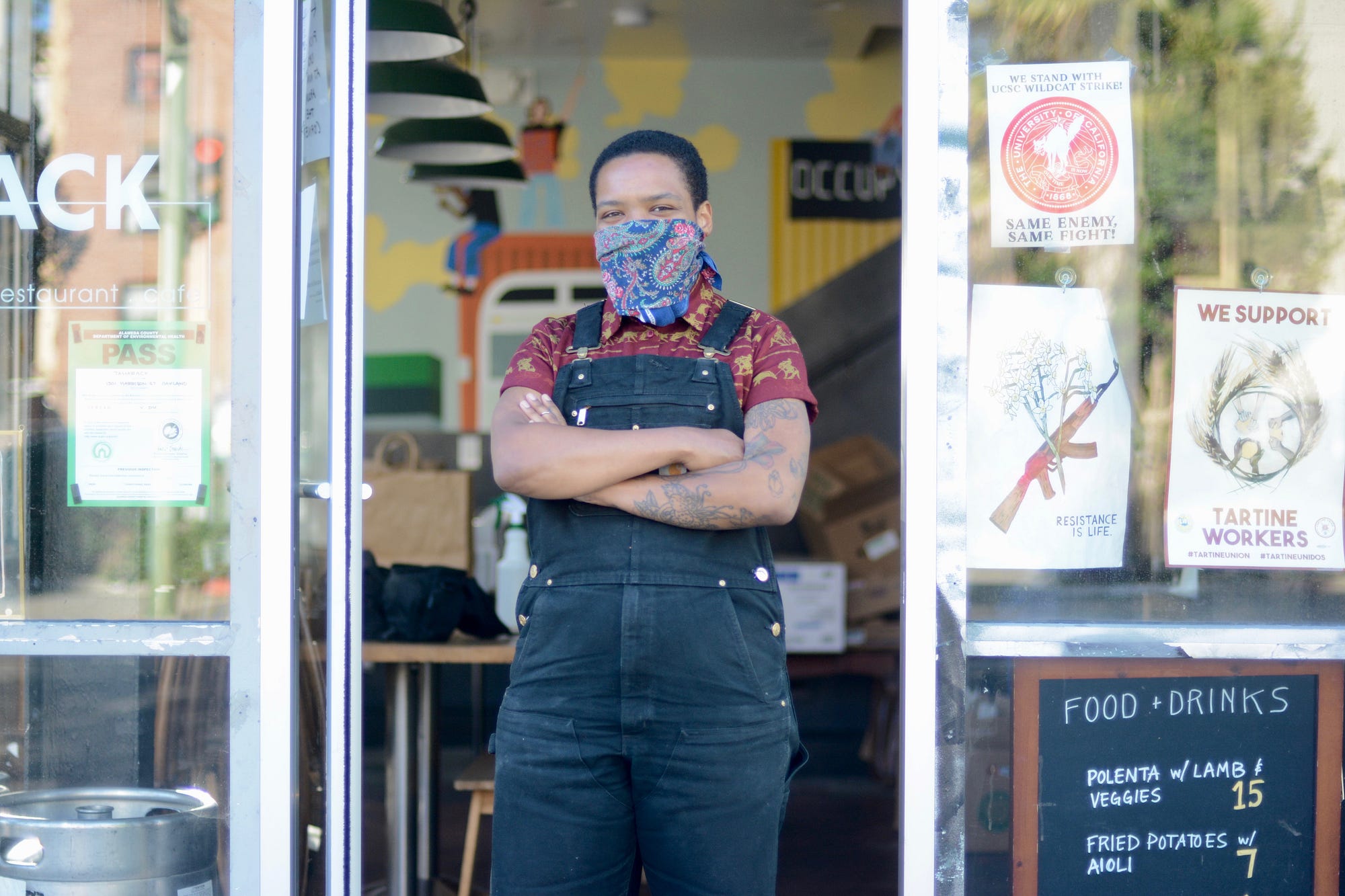
Nationwide, brick-and-mortar businesses are struggling—and the outlook is grim under a pandemic that is far from being over. Nearly 3.5 million small businesses could close in the next two months; in the next five months, that number could double. For employees and business owners alike, the present remains hard and the future remains uncertain.
But in Oakland, independent businesses are determined to stay afloat—and connected—with the communities they serve. Over the past month, I’ve spoken with (and photographed) owners of six local establishments, from music venues to shops to restaurants, about how they’re adapting to the times. To be clear, these conversations happened prior to the first series of Black Lives Matter protests that swept the the Uptown Oakland neighborhood (and the rest of the nation).
I checked back in with them last week—all businesses remain intact without damage, and each has contributed to the BLM movement in their own ways.
Now, here’s how you can support these local businesses as they slowly begin to re-open and come back to life.
Sign up for The Bold Italic newsletter to get the best of the Bay Area in your inbox every week.
Starline Social Club
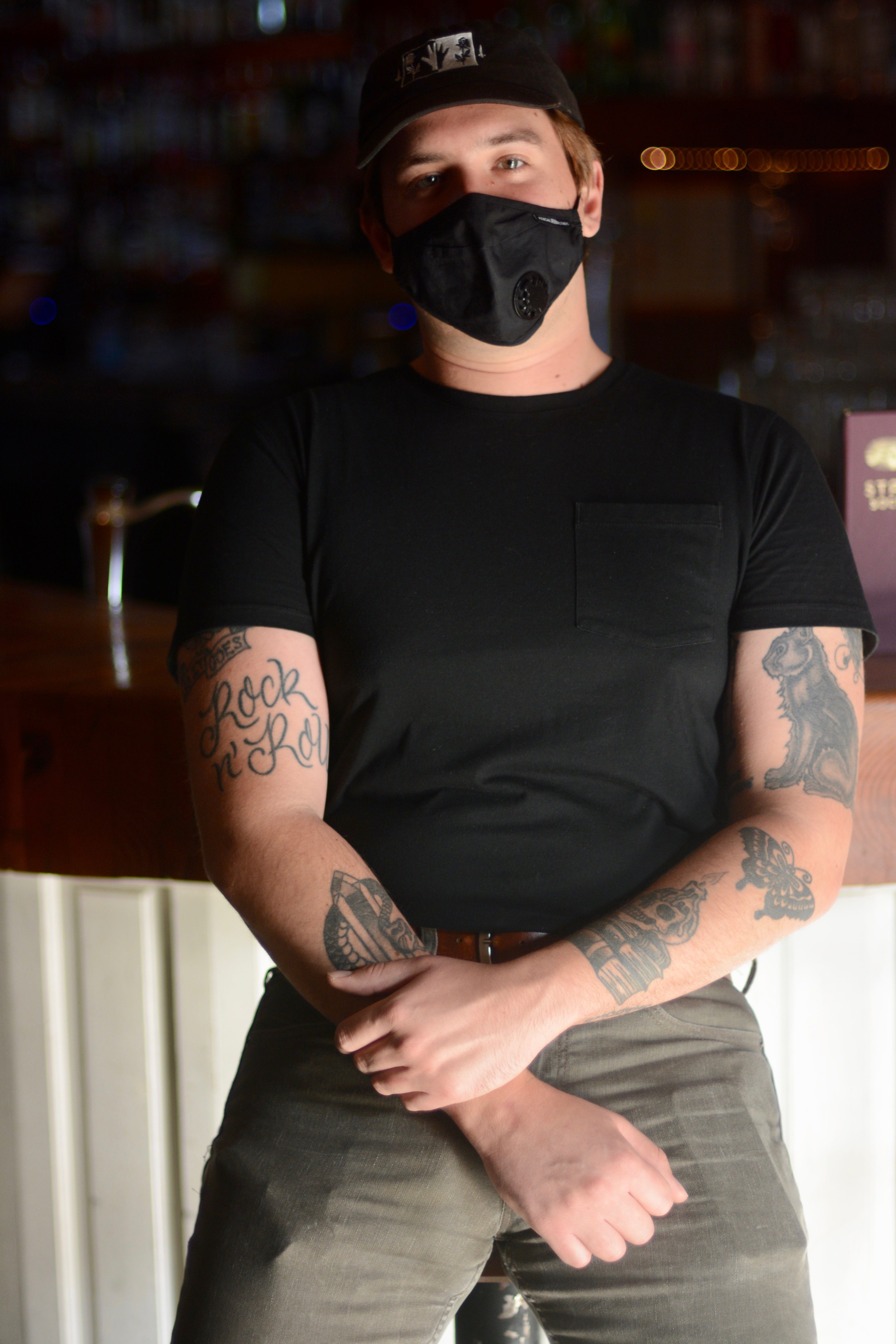

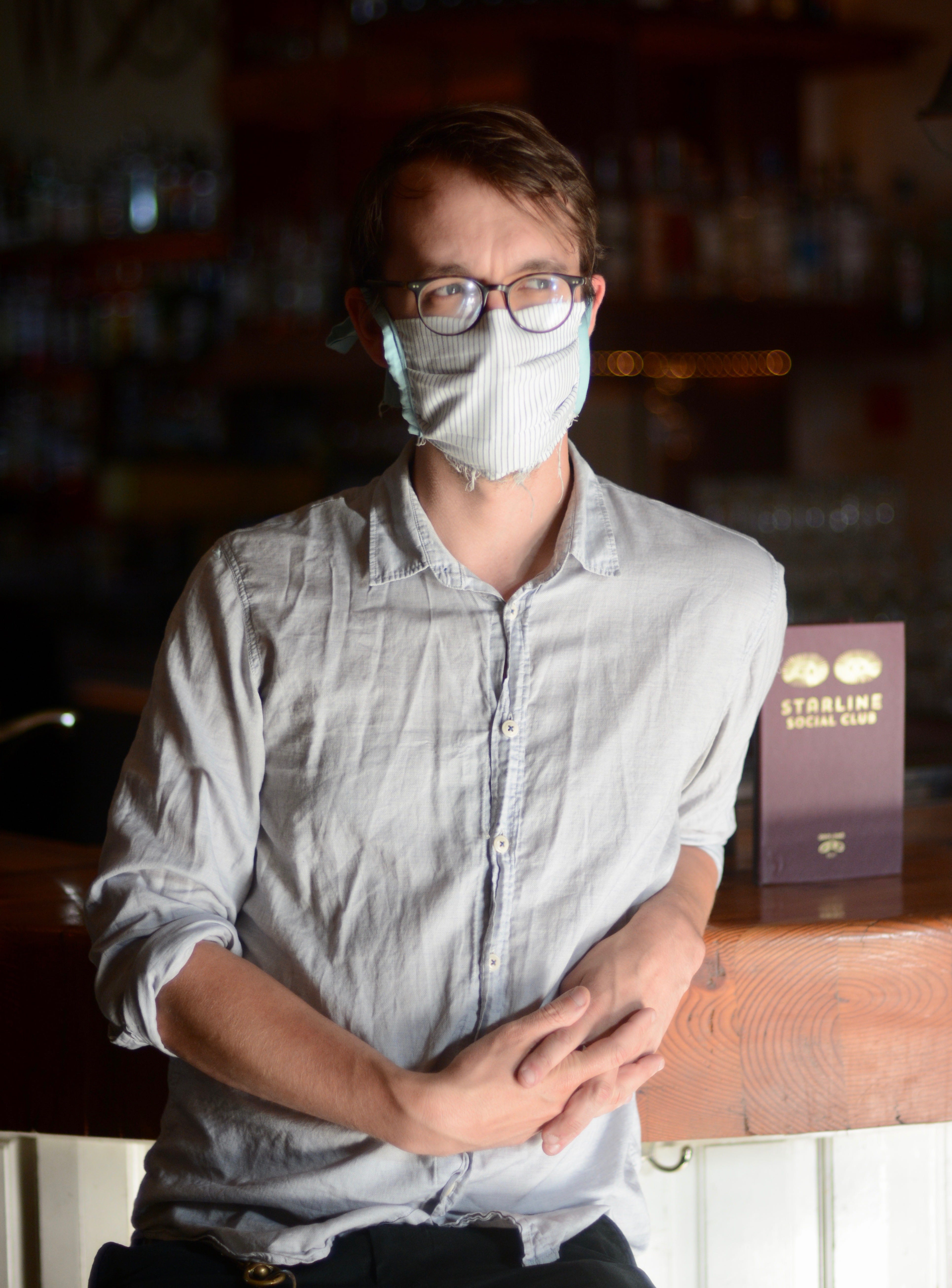
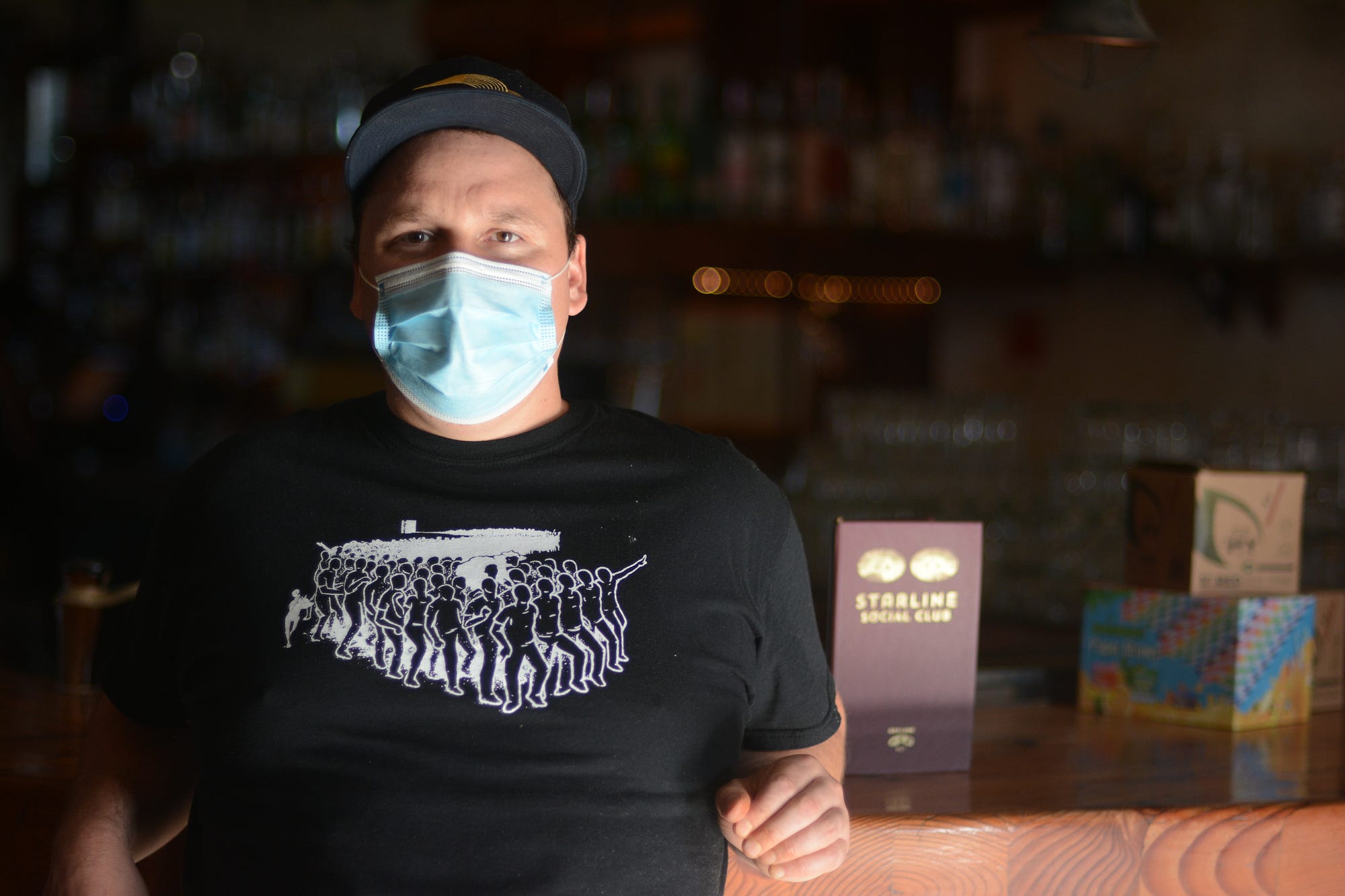
Starline Social Club is a beloved independent music venue, bar, and lounge in downtown Oakland that serves as a community gathering spot in many ways. Since the shelter-in-place order, it has been implementing a curbside pickup program offering a robust menu of dinner and drinks.
When I visited one Friday evening, all hands were on deck: As a socially distanced line haphazardly formed around the entrance, bartenders poured vibrant to-go cocktails and packed dinner orders with mechanical precision. Menu items include banana coconut daiquiris (which pack enough punch to serve two) and grilled ginger-rosemary pork chops with honey-fennel glaze.
General manager Adam Johnson says Starline’s employees are its greatest asset and that management has been working hard to support them the best they can during lockdown. The public seems to be, too—bartender Noe says some customers have driven all the way from the Sunset District in San Francisco just to order food and support them.
“Our core product is community,” Johnson says. “We use our amazing food and drink program as tools to build in-person, real-life experiences. We’re still adapting, but for now we’re offering an expanded dinner and drink menu curated for at-home dining.”
To order: Starline has temporarily ceased operations to focus on the protests, but when they resume, you can order pickup from Thursday to Sunday, 4 to 8 p.m.
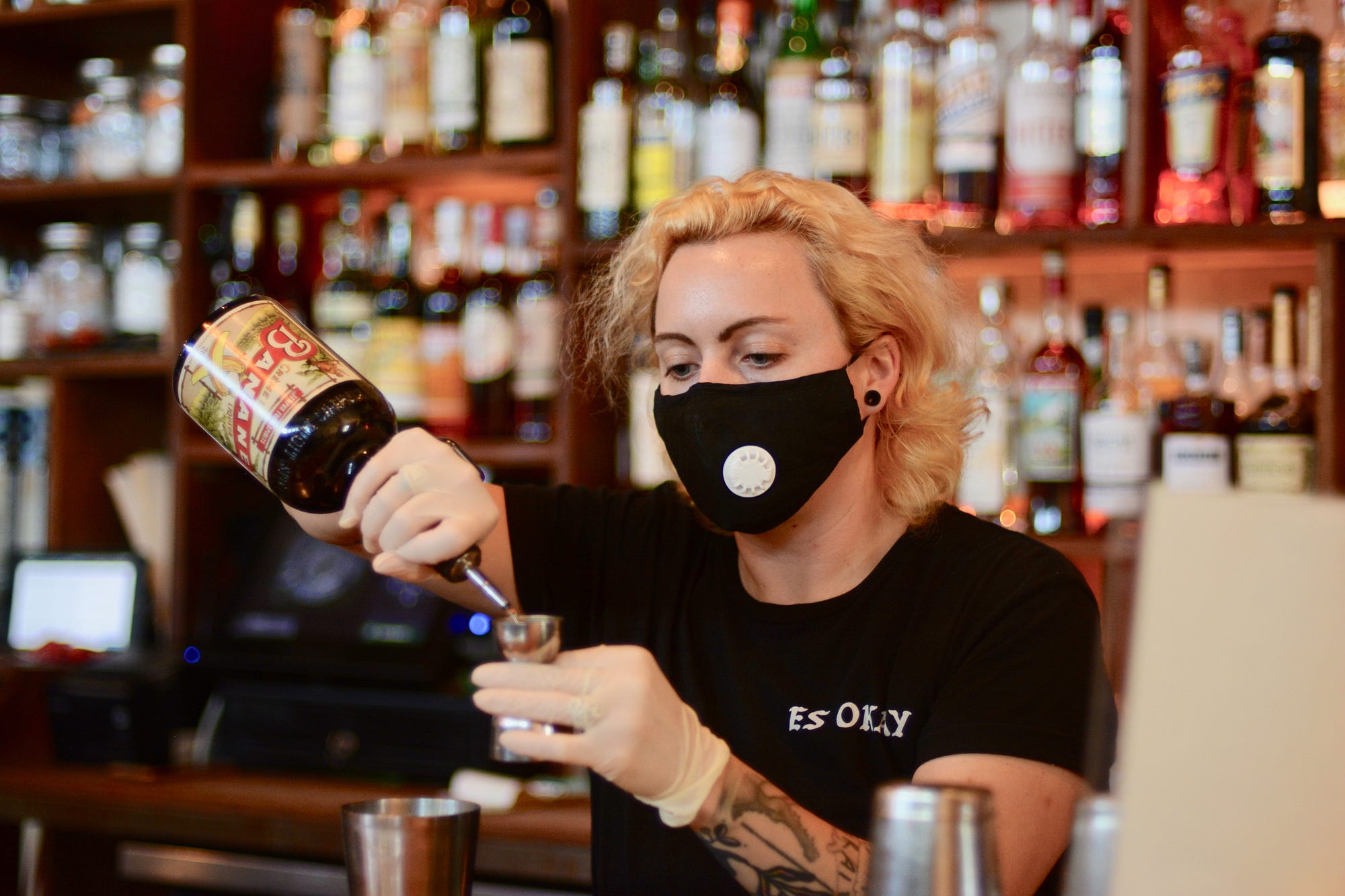
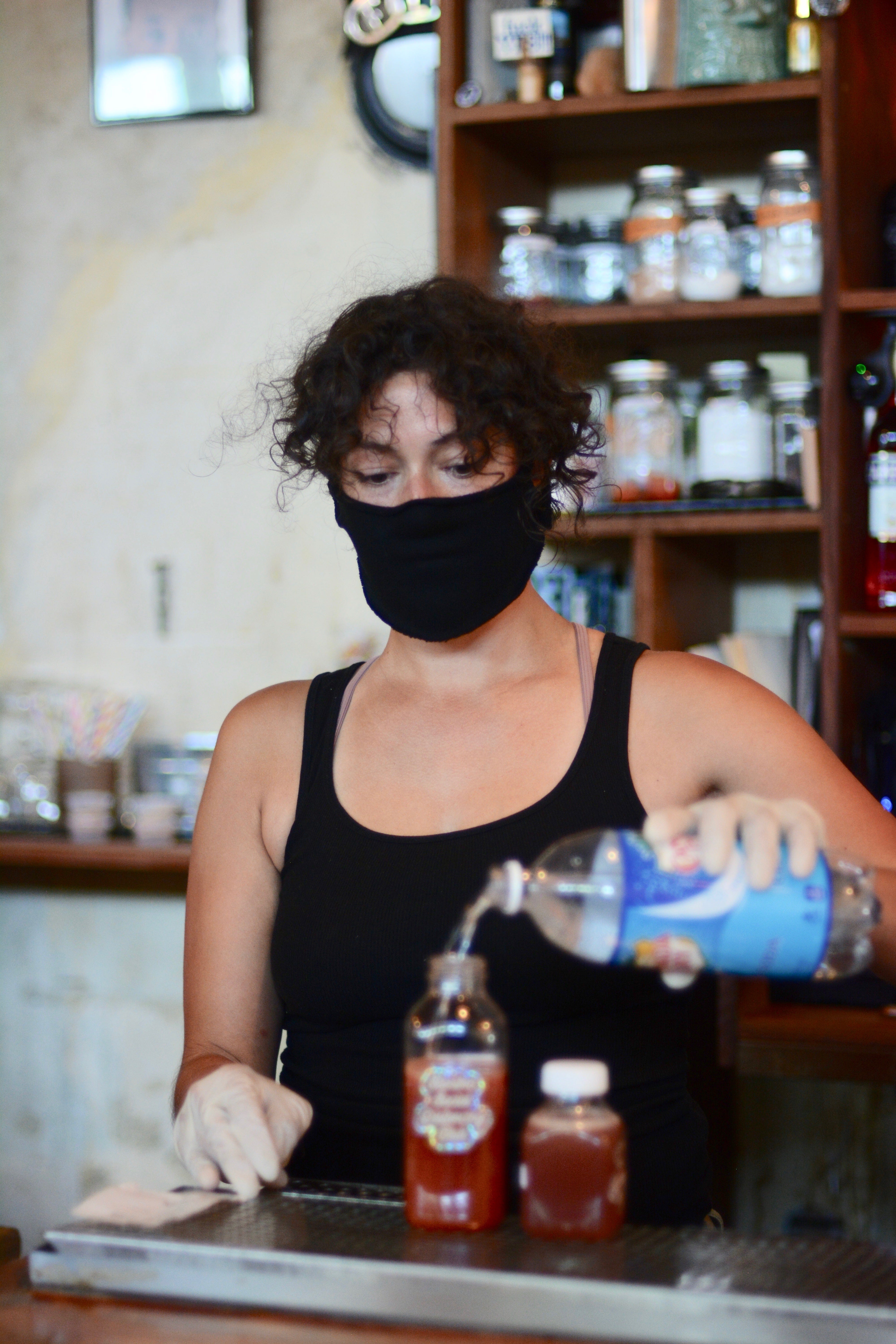
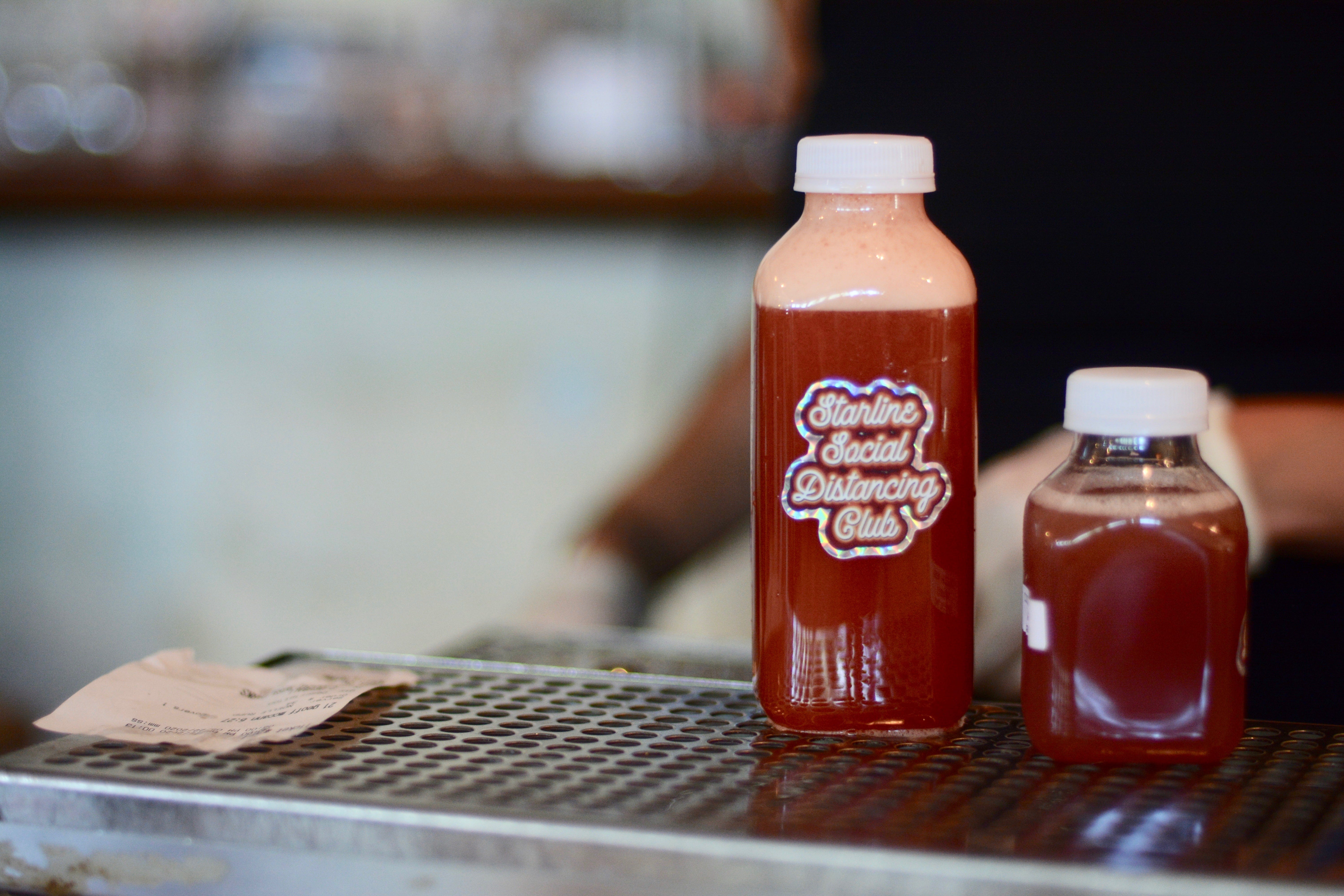
Econo Jam Records
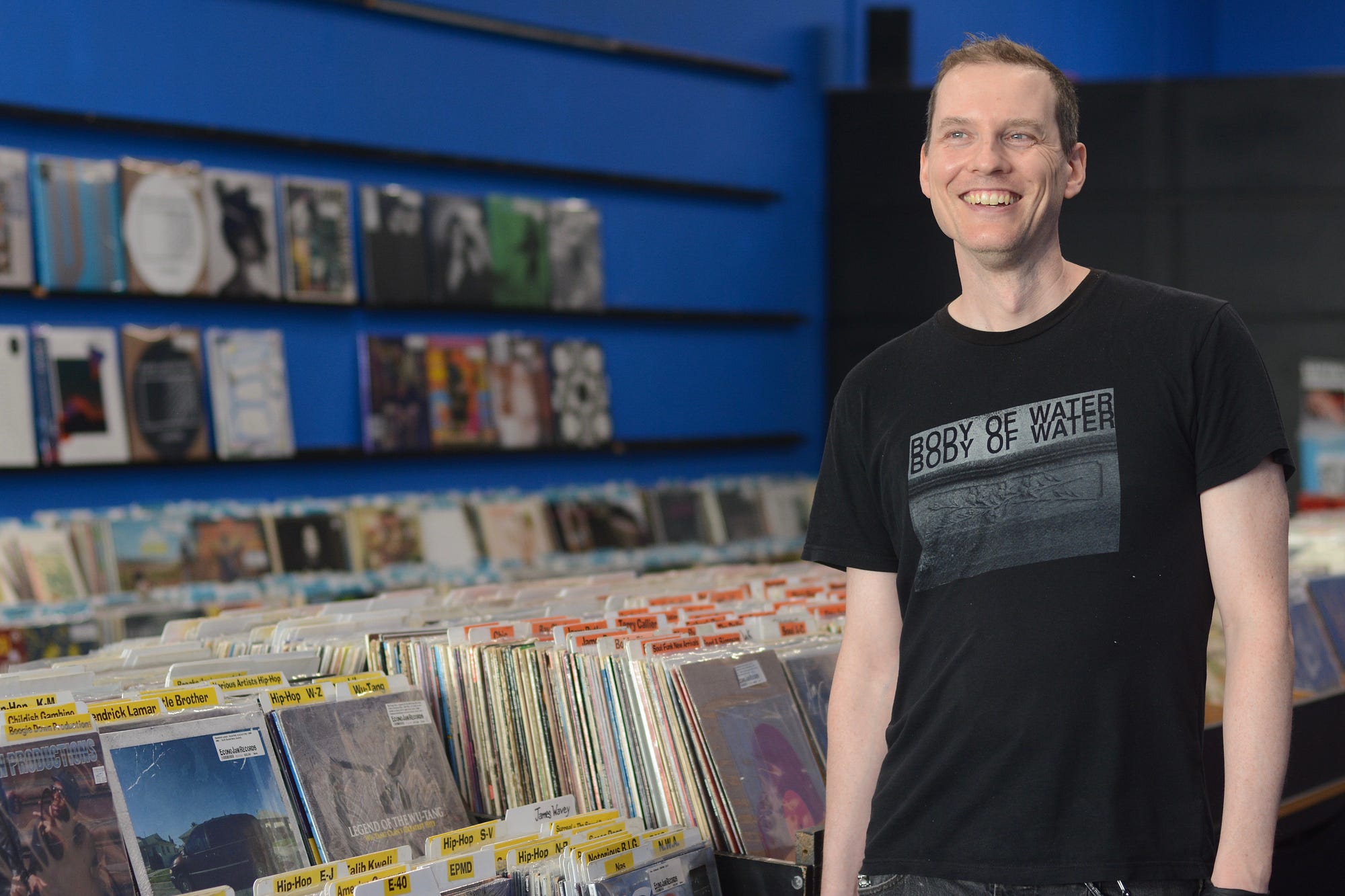
Econo Jam, a record store in Uptown Oakland, has stayed busy despite the fact that customers can’t come inside to dig through records. Instead, the shop is using social media to showcase its eclectic inventory and stay connected with its diverse customer base.
“It’s fun finding those gold nuggets and having folks jump at the chance to snatch them up,” says owner Tom O’Shaughnessy. “People stuck at home are finding comfort in listening to records, as well as filling in the gaps in their collections by shopping online.”
Now that curbside pickup is allowed, every Wednesday, Friday, and Sunday from 2 to 5 p.m., customers swing by to grab records they picked out from Econo Jam’s Instagram and Discogs page, an online marketplace to buy and sell records, tapes, and CDs.
O’Shaughnessy says he misses the camaraderie that working in a record store fosters. “We are just a bunch of music nerds who love sharing our favorite music with folks,” he says. “The hardest part of sheltering in place is missing hanging out with all of our music-loving people.”
To order: Want to browse new music? Order records directly from Econo Jam’s Instagram or Discogs page.
1-2-3-4 GO! Records
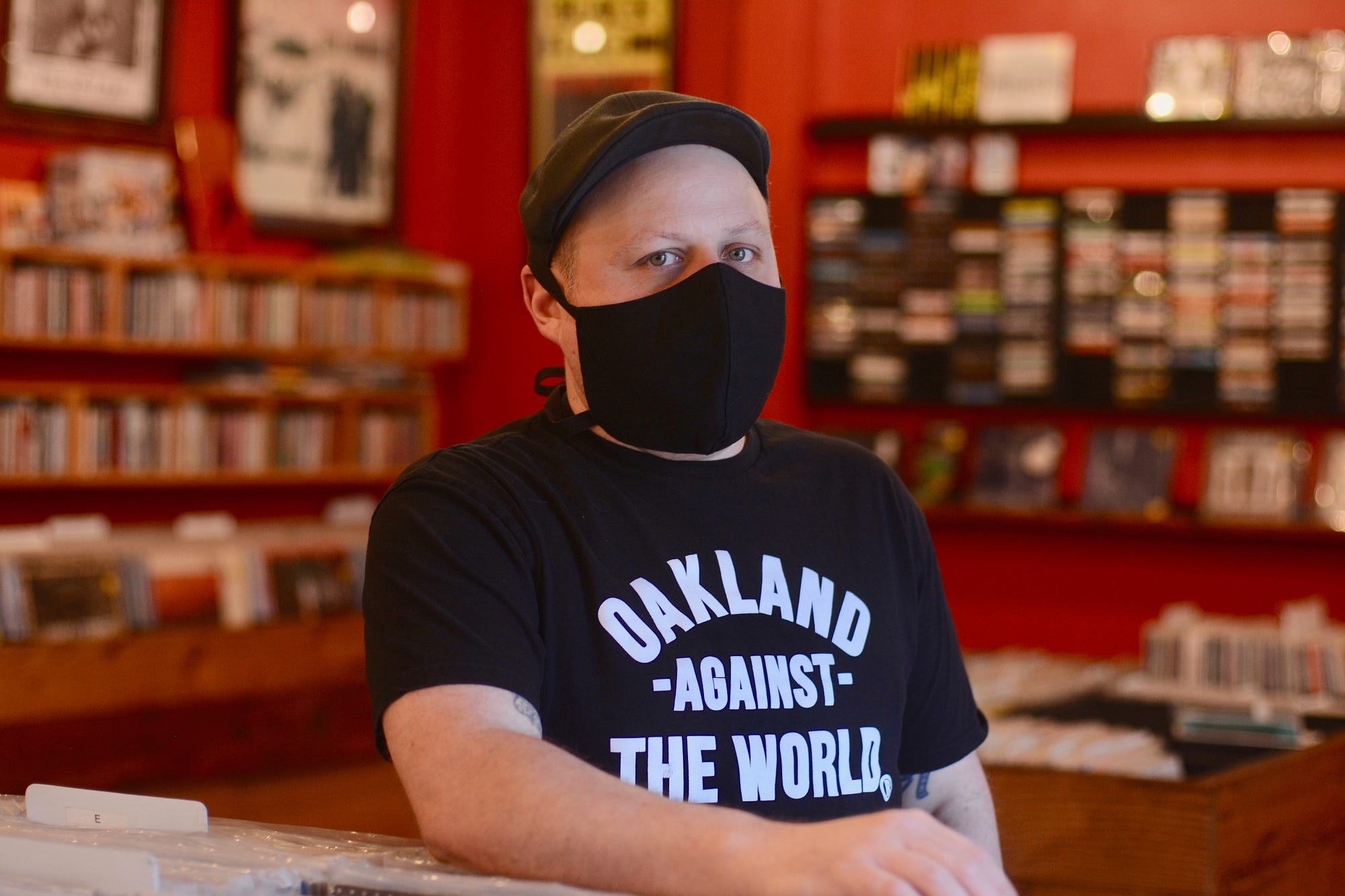
For some record store owners, adapting to lockdown hasn’t been as easy.
Steve Stevenson, owner of the iconic 1-2-3-4 GO! Records, says the shop has been hit hard by the pandemic and that he’s in the process of transitioning to online sales. Since the shelter-in-place order took effect, Stevenson had to empty out 1-2-3-4 GO!’s San Francisco location, bring all the inventory to Oakland, and list everything on Discogs — a process that is both laborious and difficult, according to other record store owners I spoke with.
Along the way, Stevenson also had to lay off all of his employees and close both stores. He estimates that between March 17 and April 26, the business lost $105,000 over the same time period last year, equating to a 65% drop. Now, 1-2-3-4 GO!’s Discogs page and GoFundMe campaign are his only sources of income.
This process—and this pandemic—has also motivated Stevenson as an Oakland business owner and resident. Since the shelter-in-place order took effect, he’s shipped approximately 2,000 online orders and has been working at the store nonstop to continue fulfilling them. But it’s not enough: Stevenson still has not received news about receiving government loans, which would only add to the shop’s mounting debt. (The store opening was community-backed and paid for through high-interest credit cards.) “Every day is a challenge, and some days are better than others, but I have a very strong will to see this business, our community, and myself survive,” he writes.
To order: Buy records on Discogs and merch, including hats, stickers, shirts, pins, and more, from the shop’s website.
To support: Donate to the store’s GoFundMe. 1-2-3-4 GO! still hasn’t received an Economic Injury Disaster Loan or Small Business Administration loan, both of which will support the shop in the short-term but will add to its mounting debt. In the meantime, Stevenson is asking for $75,000 to help the shop stay afloat and rebound.
Mountain Music
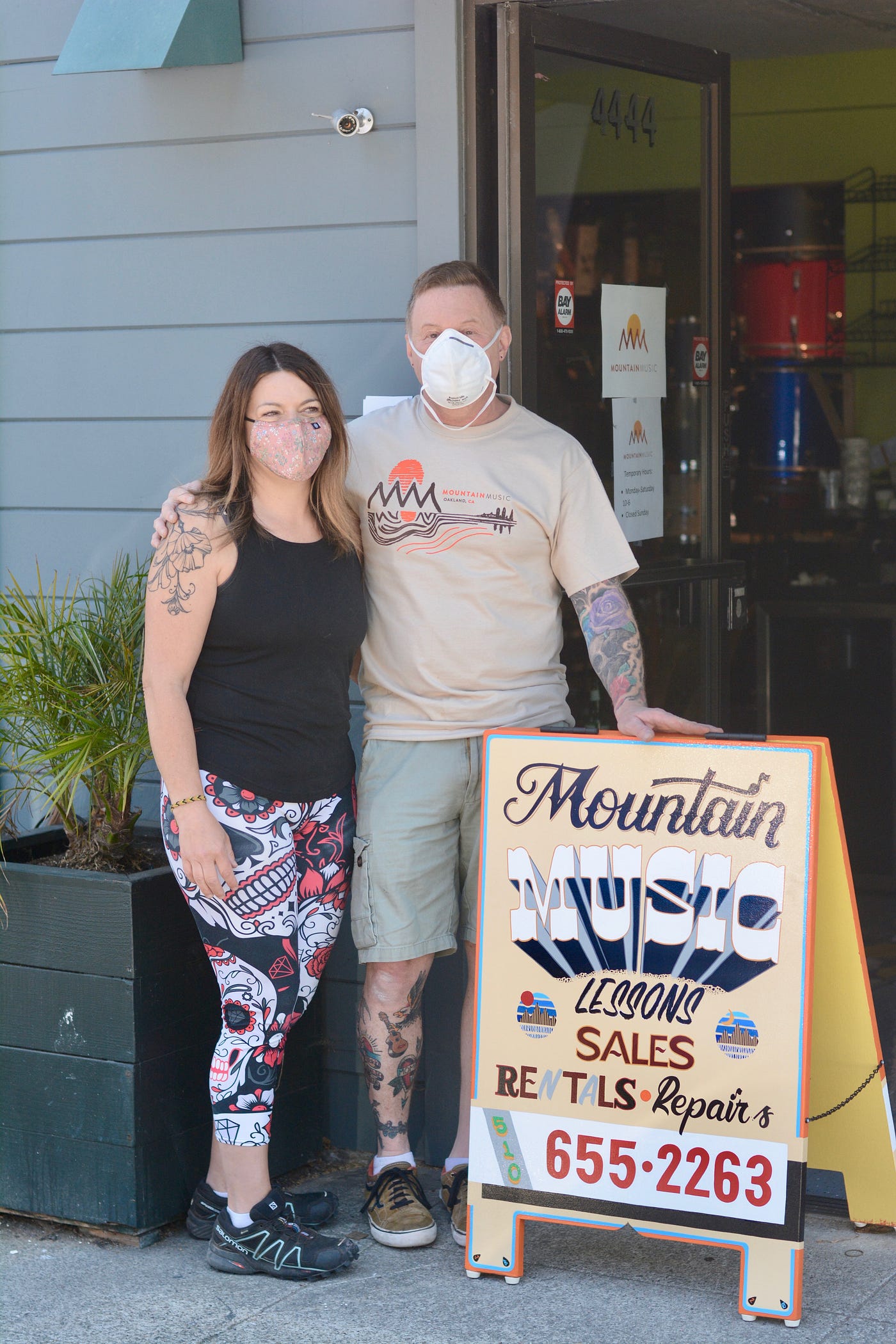
For Adam Lipansky, who owns independent music shop and community performance space Mountain Music, reconfiguring his whole business plan was the last thing he expected to have to do this year.
Aside from being a marketplace for musicians, Mountain Music was going to be a place for artists to perform. Just two weeks before the shelter-in-place order took effect, Lipansky started construction on a stage and an acoustic guitar, mandolin, and ukulele room.
Lipansky bought the space on March 1 and has been getting creative with business operations by providing virtual music lessons.
“As a new business, it’s devastating after two years of planning to not be able to welcome in and bring music to our community,” Lipansky told me.
Luckily, he says his music teachers have adapted well to providing virtual lessons, and he has retained about half of his students. Now, Mountain Music is prepared to do curbside pickup and instrument drop-off. The shop is taking in repairs, providing strings, and bringing out instruments to clients who are interested in making purchases.
“Musicians and artists have been on the forefront of adapting to the situation and bringing joy to us in so many ways. We felt it was not a time to stop and sit still, but to put our love and joy into the store, excited and ready to open our doors,” he says.
To order: Want to receive music lessons or browse for instruments? Check out Mountain Music’s website. Instructors provide weekly one-on-one, 30-minute lessons in a reserved time slot starting at $170 per month. Teachers are versed in guitar, percussion, piano, and more.
Eco Cannabis
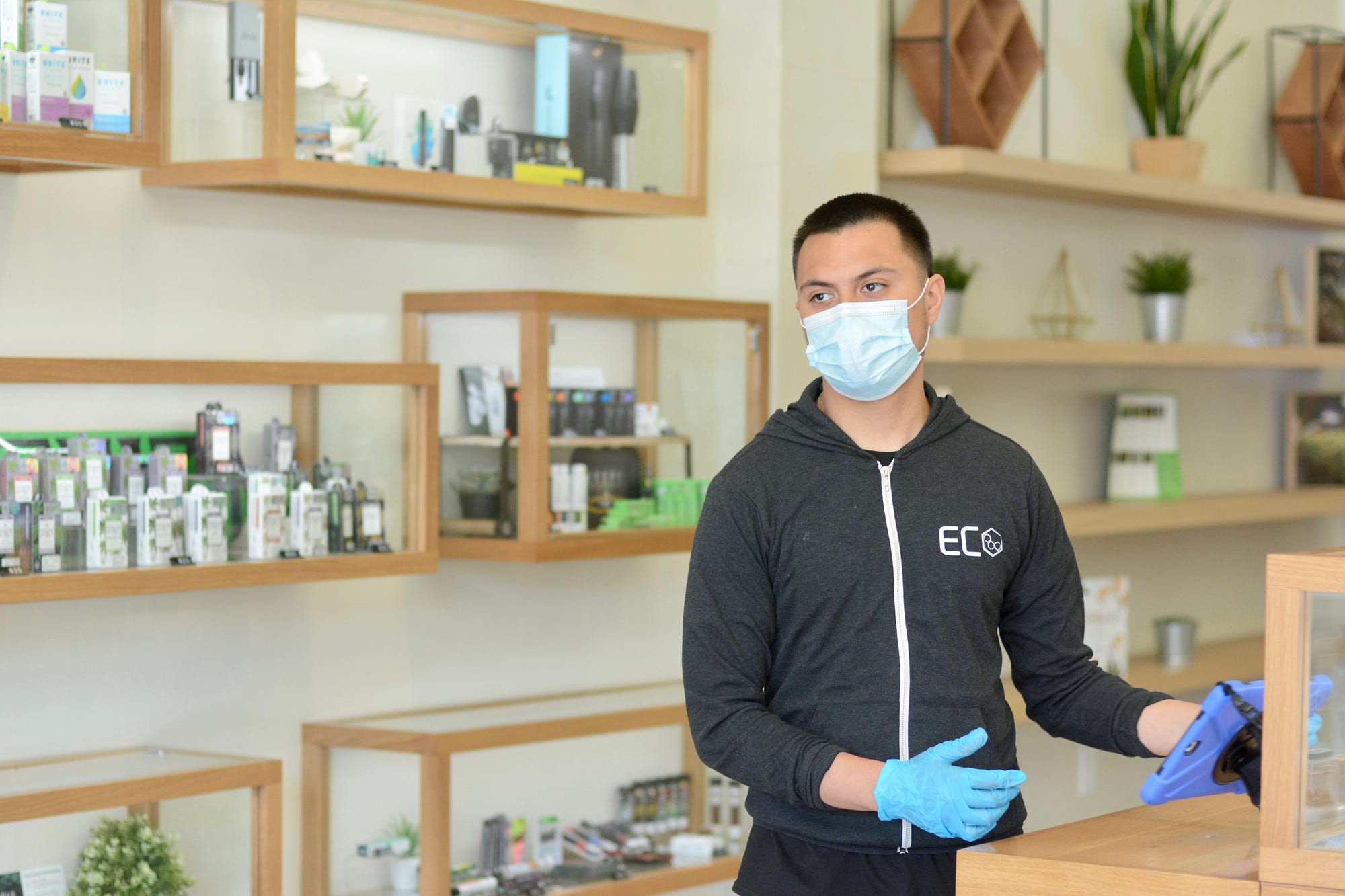

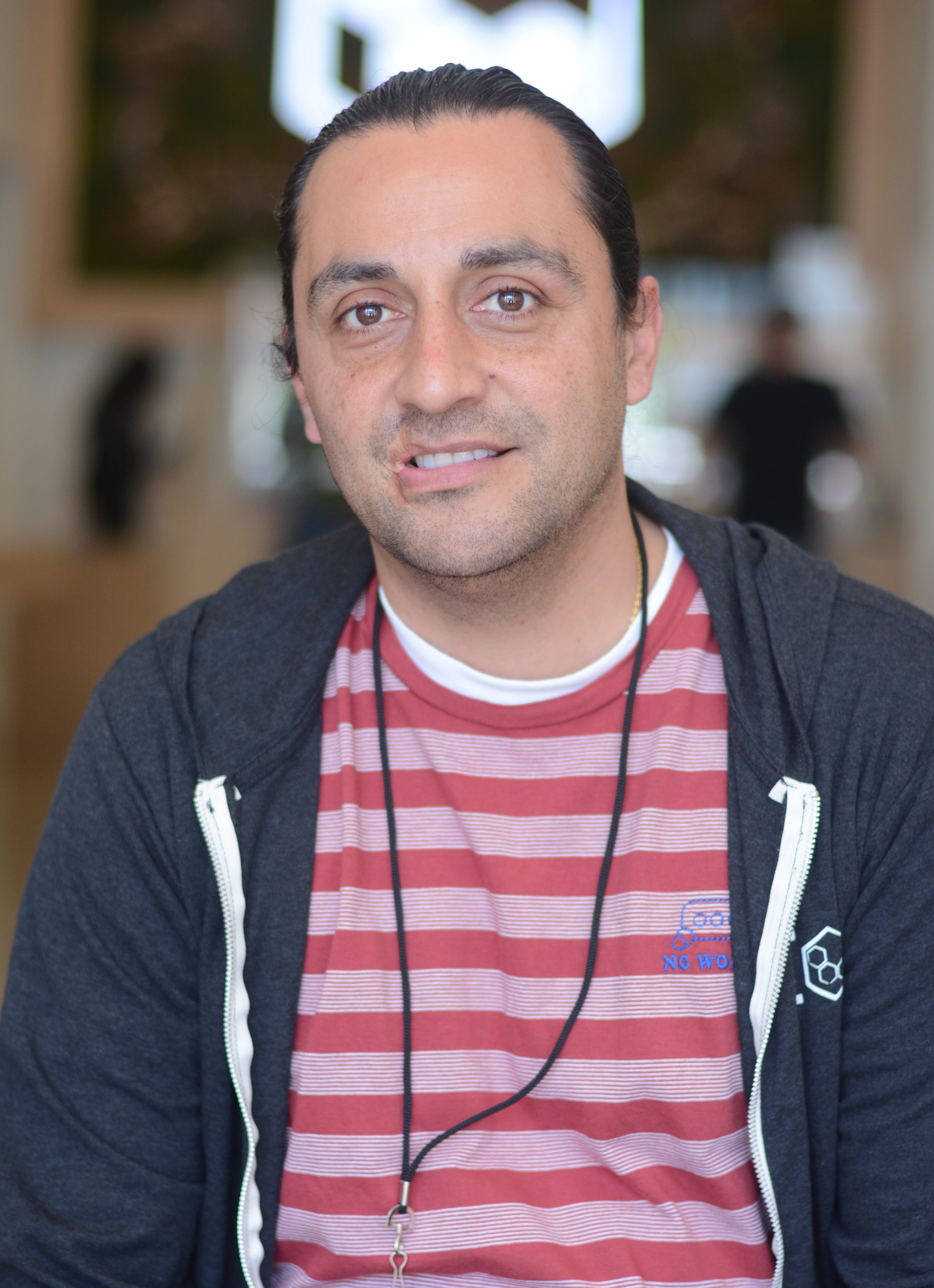

Eco Cannabis, a dispensary—and essential business—located on Telegraph Avenue, has had to prioritize the needs of its local community members by implementing pickup and delivery programs, says general manager Andre Bustos. “I really feel like it’s time to be sensitive and empathetic to everybody’s needs,” he says.
Eco Cannabis is unique for employing Oakland residents who have been disproportionately affected by the war on drugs. Half of the staff has been incarcerated, and 50% of the products at the store are purchased from social equity companies in Oakland, meaning those operated by people who were formerly prosecuted for marijuana-related crimes or harmed by the war on drugs.
“We’re proud of what we’re doing, and we’re getting people back to the workforce who have either been affected by the war on drugs or just made mistakes in their life,” Bustos says.
To order: You can get free direct delivery from the dispensary or do in-store pickup. Browse Eco Cannabis’ selection here.
Tamarack
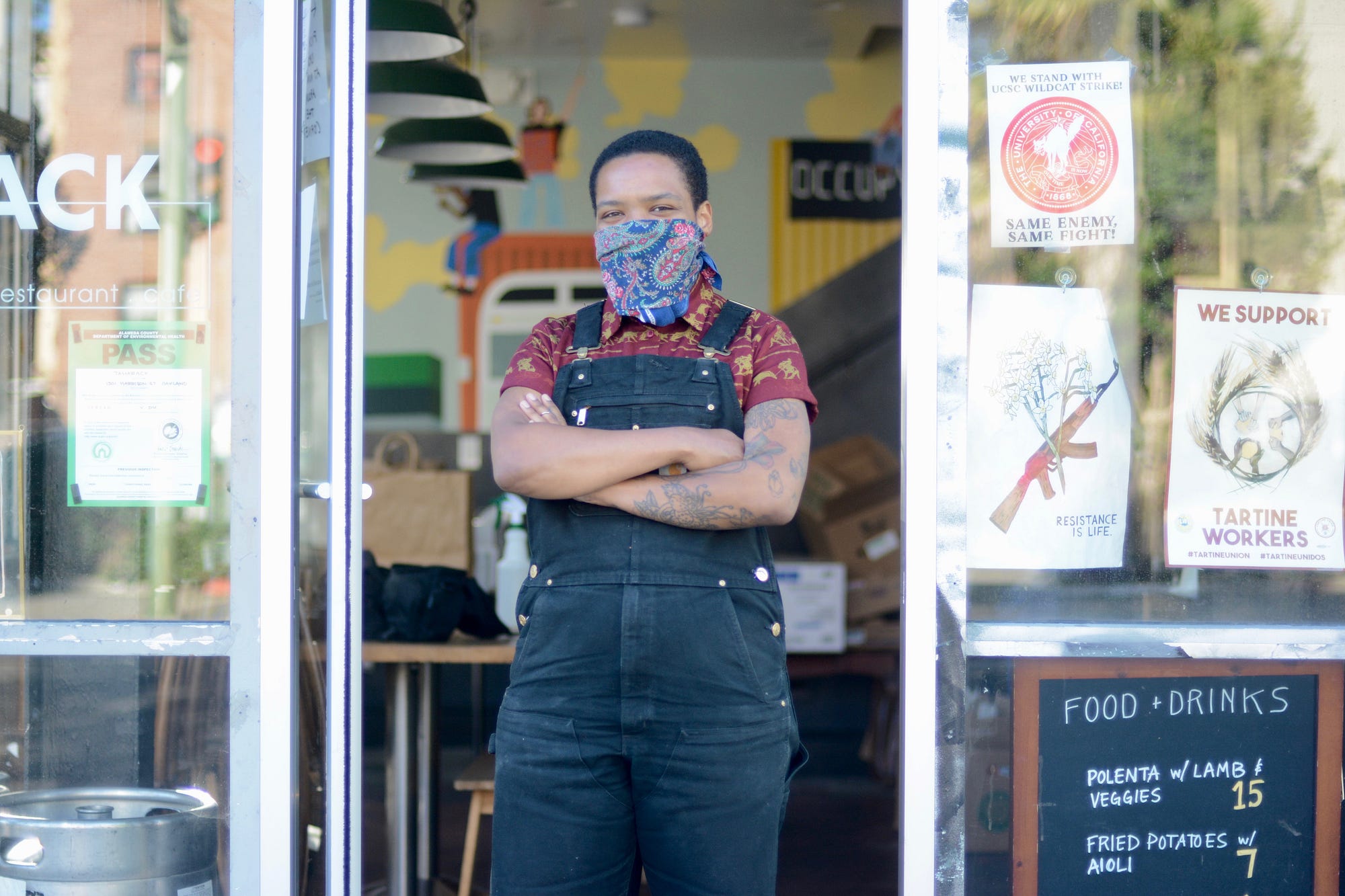
Dio Brooks, head chef at Tamarack, a co-op bar and restaurant in downtown Oakland, says adaptation is the core of the collective — and even though just two members are working, they are embracing change head-on and implementing a new bulk food pickup program. Though it’s too difficult logistically to serve food and drinks from the restaurant, customers now have the opportunity to purchase produce boxes, baking boxes, and pantry staples for themselves or to donate it to those in need.
Weekly produce boxes cost $35 and include fruits and vegetables like Albion strawberries, blood oranges, rainbow chard, Little Gem lettuces, Nantes carrots, broccolini, Persian cucumbers, golden beets, and summer squash. Bulk pantry staples start at $4 and include a selection of beans and grains by the pound. If you’re feeling adventurous, Tamarack offers $30 baking boxes that include basics like eggs, milk, sugar, and bread flour.
“The collective always tries to center community organizing and mutual aid,” Brooks says. “We had discussed doing a bulk co-op program in the past and want to promote both sustainable agriculture and sustainable quality food access for people in the community.”
For Brooks, the bulk program is a way to address critical needs and foster connection. “We hope to expand the bulk food program so that Tamarack can continue to be a hub for people… No matter what happens, we’ll keep working to meet the needs of our community and provide a space — whether physical or not — where people can connect,” Brooks says.
To order: Tamarack’s bulk program is still in its early stages but aims to expand. You can place an order either for yourself or someone else online. Check for updates on the co-op’s Instagram at @tamarackoakland.
In response to the pandemic, the city of Oakland is providing a Covid-19 relief fund. To support the small businesses and local communities hit hardest, you can make a direct donation.







